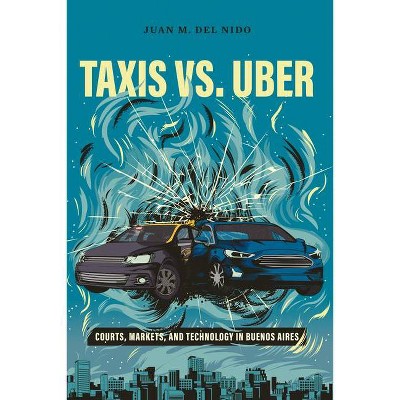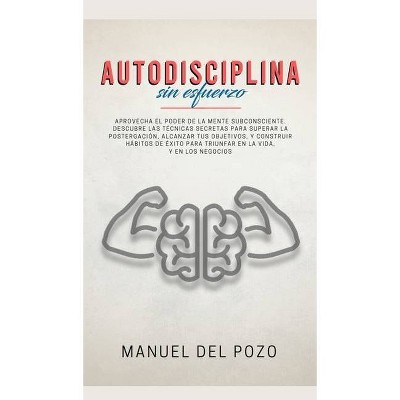Taxis vs. Uber - by Juan Manuel del Nido (Hardcover)

Similar Products
Products of same category from the store
AllProduct info
<p/><br></br><p><b> About the Book </b></p></br></br>"In 2015, Juan M. del Nido went on hundreds of taxi rides in Buenos Aires, conducting ethnographic work on the taxi industry. But by mid-April 2016, Uber launched its platform in Buenos Aires, engulfing drivers, passengers, the press, and greater general public into a frenzied hysteria that involved courts of law, political platforms, and threats of violence. This book examines not only how the taxi industry made sense of the sudden and ubiquitous presence of Uber in Argentina, but also how the assumed efficiency and objectivity of Uber's algorithmic methods catalyzed new forms of understanding ethics, responsibility and professional advancement in the Argentinean context. Tightly entwined with the politics of labor, trade, institutions, and economic life, del Nido reveals how Uber came to signify and instantiate the greatest moment of political and economic disruption seen in Argentina since the crisis of 2001. He shows how a multinational company taken to court allowed Buenos Aires's residents to craft particular ideas of what it meant to be political, and what it meant become "post-political"-to subsume, neutralize and pathologize genuine disagreement, shaping how we understand what we can even disagree about and how"--<p/><br></br><p><b> Book Synopsis </b></p></br></br><p>Uber's April 2016 launch in Buenos Aires plunged the Argentine capital into a frenzied hysteria that engulfed courts of law, taxi drivers, bureaucrats, the press, the general public, and Argentina's president himself. Economist and anthropologist Juan M. del Nido, who had arrived in the city six months earlier to research the taxi industry, suddenly found himself documenting the unprecedented upheaval in real time. <i>Taxis vs. Uber</i> examines the ensuing conflict from the perspective of the city's globalist, culturally liberal middle class, showing how notions like monopoly, efficiency, innovation, competition, and freedom fueled claims that were often exaggerated, inconsistent, unverifiable, or plainly false, but that shaped the experience of the conflict such that taxi drivers' stakes in it were no longer merely disputed but progressively written off, pathologized, and explained away. </p> <p>This first book-length study of the lead-up to and immediate aftermath of the arrival of a major platform economy to a metropolitan capital considers how the clash between Uber and the traditional taxi industry played out in courtrooms, in the press, and on the street. Looking to court cases, the politics of taxi licenses, social media campaigns, telecommunications infrastructure, public protests, and Uber's own promotional materials, del Nido examines the emergence of "post-political reasoning" an increasingly common way in which societies neutralize disagreement, shaping how we understand what we can even legitimately argue about and how.</p><p/><br></br><p><b> Review Quotes </b></p></br></br><br>This beautifully written account of the dramatic arrival of Uber in Buenos Aires poses fundamental questions about public life and politics in the technologized spaces of contemporary capitalism. Juan M. del Nido's vivid ethnography shows how the rhetorical resources of late capitalism can produce a world that appears beyond politics, as fairness and efficiency become problems to be addressed by the deployment of algorithms rather than debate and contestation.--Penny Harvey, University of Manchester<br><br>This timely and important book opens up a refreshing analytical lens on questions of class and the nature of the political that are truly at stake in contemporary Argentina. Theoretically sophisticated and ethnographically evocative, it will be invaluable to any reader interested in the politics of new economic formations in the region and beyond.--Sian Lazar, University of Cambridge<br><br>We all know Uber exists only on the back of the taxi industry's long historical efforts to acclimatize the middle class to entering cars driven by strangers.JuanM. delNidoshows us in his imaginative ethnography that this is only the tip of the iceberg in understanding the changes Uber brings.He persuasively demonstrates how crucial it is to understand the legal and practical rubrics shaping the working lives of taxi cab drivers--that Uber hopes to disrupt--as well as the middle-class economic logics that Uber appeals to.--Ilana Gershon, Indiana University<br><p/><br></br><p><b> About the Author </b></p></br></br><b>Juan M. del Nido</b> is Philomathia Postdoctoral Research Associate at the Max Planck Cambridge Centre for Ethics, Economy, and Social Change.
Price History
Price Archive shows prices from various stores, lets you see history and find the cheapest. There is no actual sale on the website. For all support, inquiry and suggestion messagescommunication@pricearchive.us



















